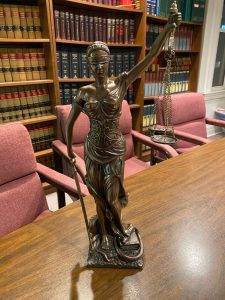 Clearing Your Record in Connecticut
Clearing Your Record in Connecticut
Many of my clients say, “I’m tired of my past holding me back.”
One old record can derail job interviews, housing applications, and professional licensing—even years later.
Connecticut now offers three legal pathways to clear your record: expungement, pardons, and the new Clean Slate law.
Choosing the right path starts with knowing what qualifies—and what doesn’t.
Option 1: Expungement (Automatic Erasure After Dismissal or Diversions)
If your case was dismissed, then you will receive an automatic expungement by law, CGS 54-142a
-
Your case was dismissed, nolled (13+ months with no re-filing), or you were acquitted
-
You received a pardon
Once expunged, the record is legally erased and should not appear on background checks.
Option 2: Pardon (For Convictions)
If you were convicted, a pardon is your main solution. Granted by the Connecticut Board of Pardons and Paroles, there are two types:
-
Full (absolute) pardon — removes the conviction entirely
-
Provisional pardon (Certificate of Employability) — doesn’t erase it, but protects you from being denied jobs or licenses because of it
You must apply, wait 3 years (misdemeanors) or 5 years (felonies), finish your sentence and probation, and have no pending charges.
Our role: I regularly assist clients in preparing strong pardon applications and represent them at their Board of Pardons hearings.
A well-prepared application can make all the difference in whether you get a second chance or walk away empty-handed.
Option 3: The Clean Slate Law (Automatic Erasure for Eligible Convictions)
Connecticut’s Clean Slate law automatically erases certain records—no application required—but only for qualifying offenses:
-
Misdemeanors: Eligible after 7 years of no convictions
-
Certain Felonies (Class D, E, and unclassified, with sentences ≤ 5 years): Eligible after 10 years
However, many crimes are explicitly not eligible, including:
-
Family violence offenses
-
Sex offenses
-
Assaults (2nd & 3rd degree), strangulation
-
Burglary with a firearm
-
Stalking
-
Enticement of minors and child exploitation offenses
-
Various weapons-related crimes
If you were convicted after January 1, 2000, eligible convictions should eventually be erased automatically.
Convictions from before 2000 require a court petition.
Our role: We help clients file Clean Slate erasure petitions for qualifying cases and track their eligibility when the state’s automatic process is delayed. If your record qualifies, we can move proactively instead of waiting on the backlog.
Expungement vs. Pardon vs. Clean Slate
-
Expungement: The fastest relief if your case ended in dismissal, diversion, or acquittal
-
Pardon: The best option if you were convicted and want that conviction erased or shielded
-
Clean Slate: Automatic erasure after 7–10 years if you qualify, though the rollout has been slow. For pre-2000 cases or ineligible crimes, you’ll still need legal help
Why This Matters
Employers, landlords, and licensing boards still run background checks—and one old conviction can hold you back long after you’ve moved forward.
Clearing your name is about reclaiming opportunities and peace of mind.
I’ve helped hundreds of clients through expungement, pardons, and Clean Slate relief—changing outcomes for jobs, housing, and futures.
My office regularly:
-
Files Clean Slate erasure petitions for qualifying clients
-
Prepares and submits pardon applications with supporting evidence
-
Represents clients at pardon hearings before the Connecticut Board of Pardons and Paroles
When you’ve turned your life around, you deserve an advocate who makes sure the system gives you that second chance.
Frequently Asked Questions
1. Do I need to apply for Clean Slate?
No — it’s automatic for eligible convictions, but many clients still need help filing petitions or confirming eligibility.
2. What crimes are excluded from Clean Slate?
Family violence, sex offenses, certain assaults, strangulation, burglary with a firearm, stalking, child exploitation, and some weapons offenses.
3. How do I know if my case qualifies?
Call my office. We review your record and give you a clear answer about eligibility and timing.
4. Can I get a pardon if Clean Slate doesn’t apply?
Yes. Pardons are available for convictions that don’t qualify under Clean Slate.
5. Do I need a lawyer for a pardon application?
Not legally, but having representation can significantly improve your chances. We prepare your application and stand with you at the hearing.
Take the Next Step
If you’re ready for a fresh start, don’t guess at your options.
I can evaluate whether Clean Slate, expungement, or a pardon is the right path — and I’ll handle the filings and represent you through the process.
📞 Call me today at (203) 357-5555 or contact me online for a free consultation.
Let’s clear your record and put your future back in your hands.
 Connecticut Criminal Lawyer Blog
Connecticut Criminal Lawyer Blog










